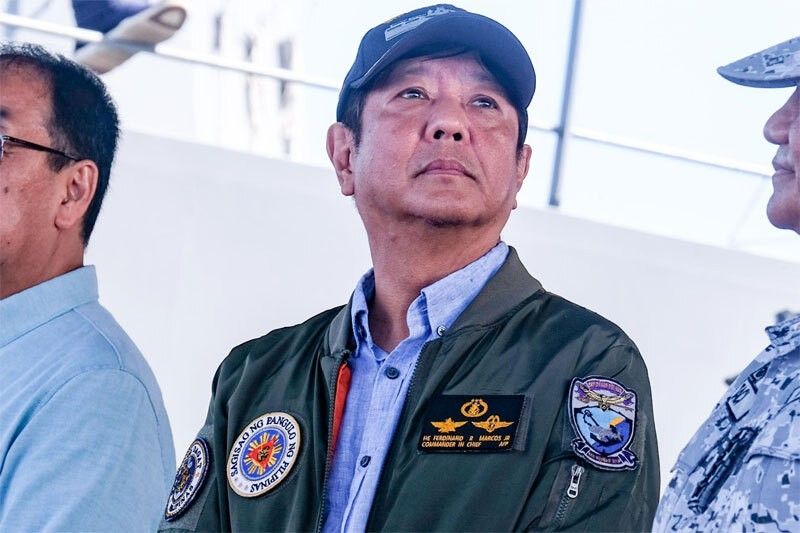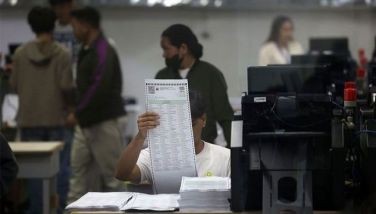Government support to turn Philippines into export powerhouse – Marcos

MANILA, Philippines — The government must give exporters greater support to make them globally competitive and help them achieve its goal of transforming the Philippines into an “agile export powerhouse,” President Marcos said yesterday.
At the International Trade Forum in Taguig, Marcos said the export industry is “crucial and indispensable” to the Philippines’ developmental strategy, with no less than $49 billion worth of revenues still untapped and unlocked by the sector.
He added that the growth of the country’s export industry holds the key to the government’s attaining national development targets.
“So cognizant of our pivotal role, we have to make sure that this economic linchpin that we are counting on for so much, will be properly and firmly in place,” the President said.
Marcos noted that the role of the government in preparing the country’s exporters to compete in the global market is highlighted in the Philippine Export Development Plan, which outlines the growth strategies for the industry in the next six years.
“Resounding in the plan is the necessity for heightened government support. This calls for a host of vital government interventions, such as infrastructure, greater ease in doing business, promotion and marketing, financing, even legislative initiatives, amongst others,” the Chief Executive said.
“Considering the magnitude of the task, we can only achieve this through a whole-of-government, whole-of-nation approach. It’s a holistic approach that calls for strategic coordination, with partnerships and linkages within the private sector, with the government agencies, and of course, the international community. That is the only way that we see moving forward,” he added.
Marcos said a partnership between the national government and the private sector is crucial, noting that the success of other economies’ trade and exports did not come about by accident but is a result of a “planned progression.”
“The essential part that government will have to play is to support (the) private sector... Now that we have opened all of these trade agreements and… all of these markets for our exporters, that we must help all of the exporters prepare to compete,” he said.
“The private sector knows what to do. The private sector knows what needs to be done so that they will compete. And in that regard, that is where the partnership becomes particularly important because we in government need to support those needs and those challenges that the private sector is facing,” he added.
The Philippine Export Development Plan for 2023 to 2028, which was approved by Marcos this month, seeks to address challenges in the sector and to adopt an industry development-centric approach to transform the Philippines from being a laggard to a major export player in the global economy.
The plan identifies four priority industry clusters – industrial machinery and transport cluster, which includes the semiconductor subsector and those that are into electric vehicles and mineral ores processing; technology, media and telecommunications cluster, including the business process outsourcing sector; health and life sciences cluster and the modern basic needs of a resilient economy, which covers sectors dealing with food and energy security.
It also enumerates three strategic actions to develop the export clusters, namely, addressing production constraints, developing a strong innovative export ecosystem, and increasing the Philippines’ mindshare in the global market.
Weaknesses
Marcos said the export development plan also maps out the weaknesses, inefficiencies and inhibitive factors within the sector and lays down strategies on how to address them.
While its total exports are growing, the Philippines falls behind its Southeast Asian neighbors and still has to grapple with critical issues like comparatively less-diversified export portfolio and trade barriers and frictions, he added.
Marcos noted that 40 percent of all the country’s exports are only one product.
“The level of diversification is something that we have to look at and we have to improve in the coming years,” the Chief Executive said.
“Perhaps this is the elephant in the room. We have had several good export plans over the many decades; but nonetheless we are still playing catch-up in the global scene. It is high time that we confront and address these issues head-on,” he pointed out.
He also expressed optimism that the Philippines can establish itself as an “agile export powerhouse” by 2028.
“Achieving more than double our current level of exports is, in fact, a realistic target. We can transform the Philippine export industry into a significant economic engine that will generate over a million high-quality and sustainable jobs,” he said.
Trade deals
Marcos also cited the importance of the Regional Comprehensive Economic Partnership (RCEP), describing the agreement as a “significant milestone in our nation’s export agenda.”
The RCEP, which came into force this month, is a trade deal between members of the Association of Southeast Asian Nations and their trade partners China, South Korea, Japan, India, Australia and New Zealand. The mega trade agreement covers trade in goods, trade in services, investment, economic and technical cooperation, intellectual property, competition, dispute settlement, e-commerce, small and medium enterprises and other topics.
“With a 15-country market coverage, this will expand further the market reach of our exported goods. RCEP covers, in terms of individuals, over two billion individuals that are involved in this trade agreement,” Marcos said.
According to Marcos, the Philippines’ participation in trade agreements not only deepens its economic integration, but also demonstrates its global competitiveness.
“Hence, we must continue to forge these vital agreements and preferential systems, and also maintain our good standing in, and seek renewal, of existing ones, including those with the EU (European Union) and the US,” Marcos said.
“However, the opening of these markets on both the supply side and on the demand side has an implied premise and it is that we need to prepare ourselves to compete in the global market,” he added.
- Latest
- Trending
































